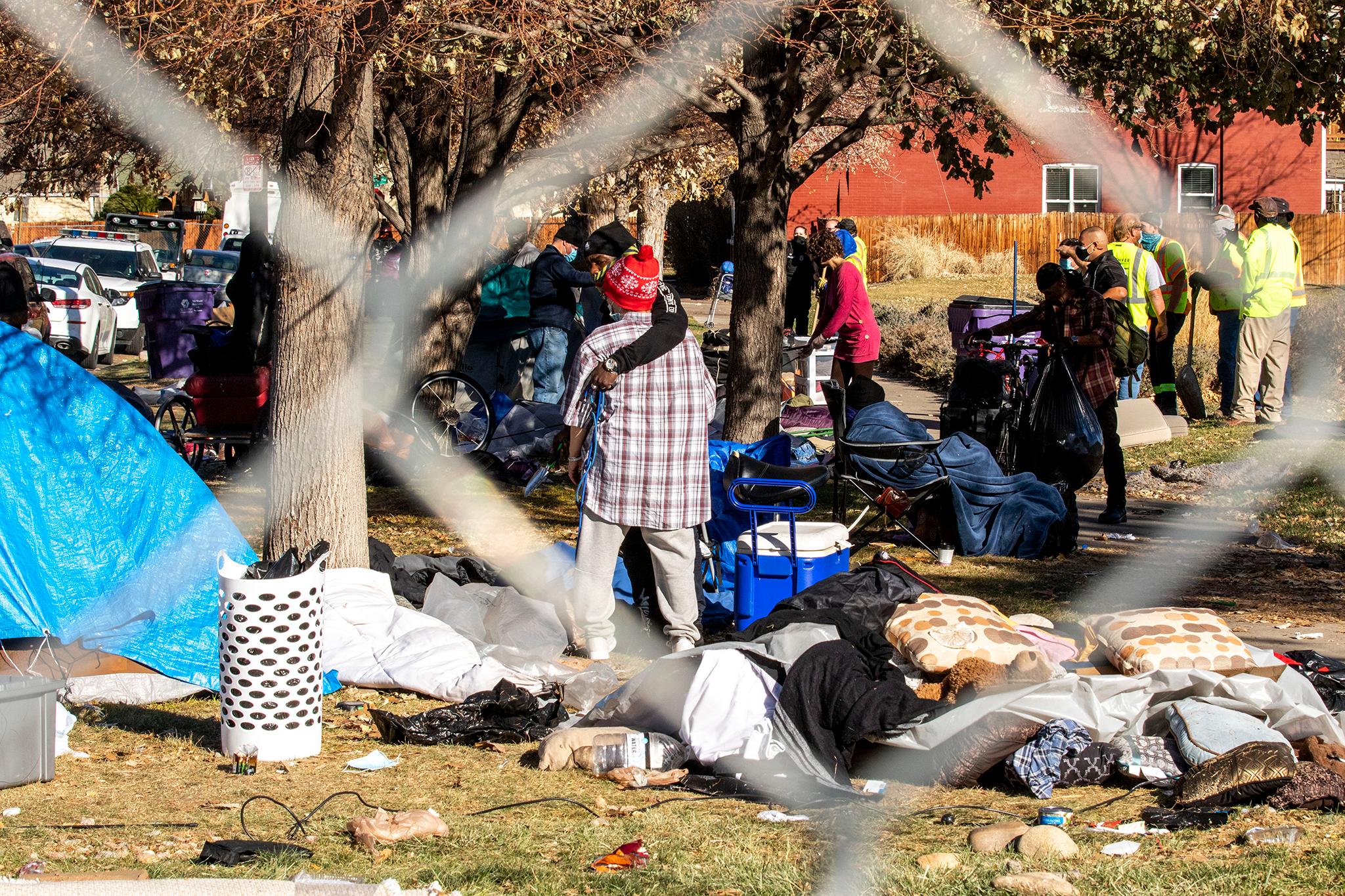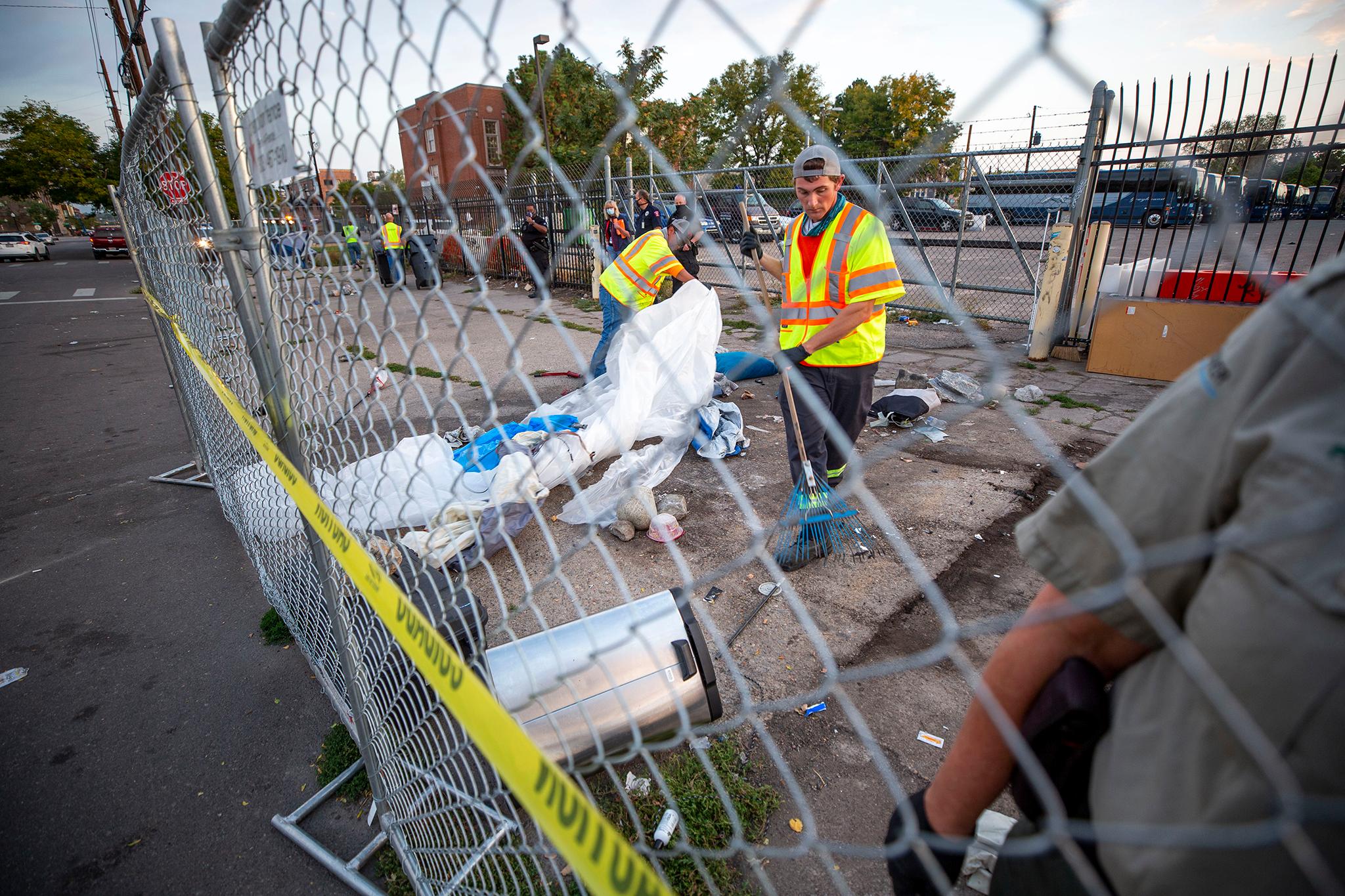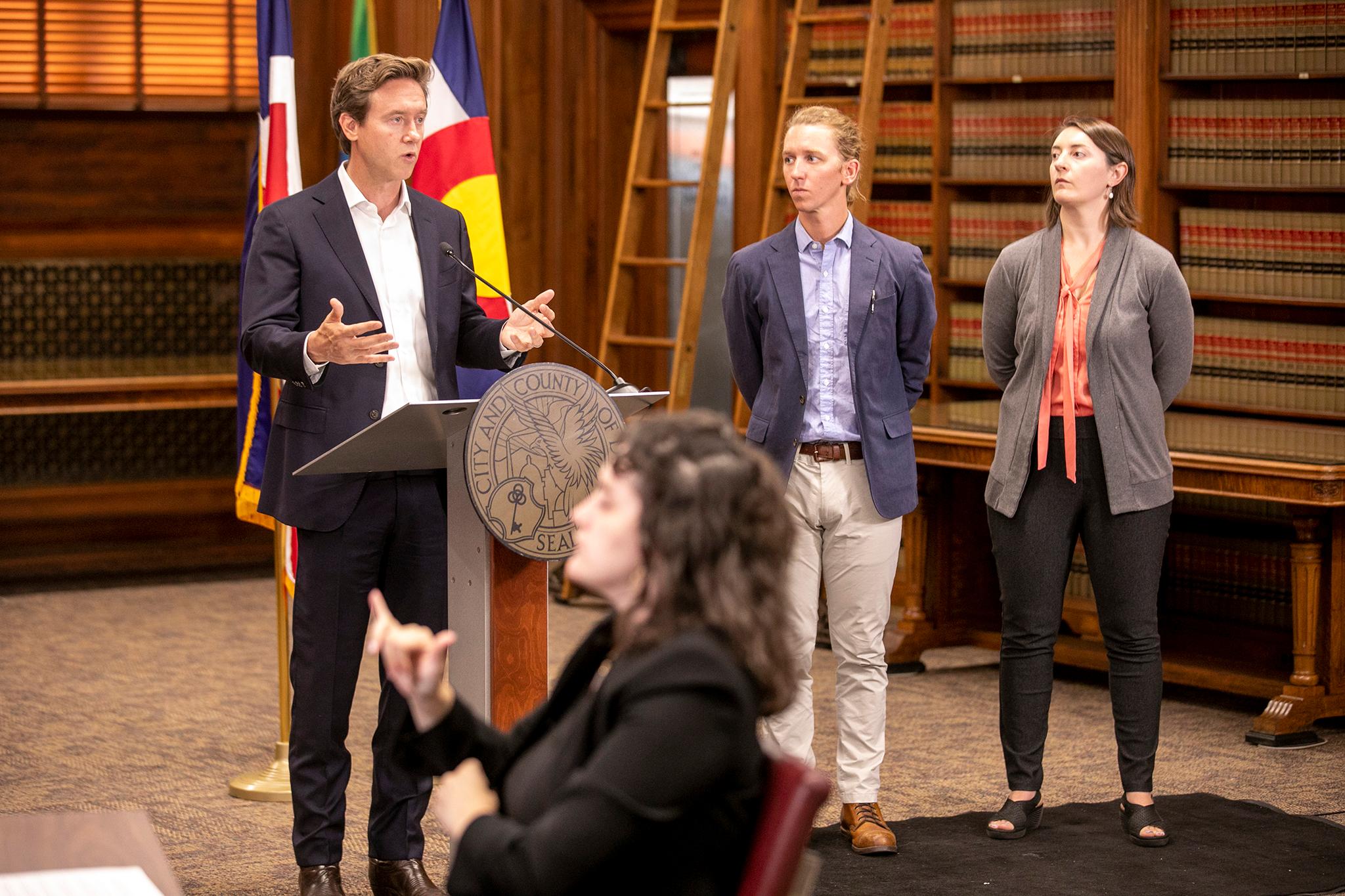Mike Johnston's administration will conduct its first encampment cleanup Friday. Johnston had temporarily halted encampment sweeps while his administration transitioned into office, despite widely reported yet unfounded rumors that he had ended the practice.
Friday's sweep will take place in the area between Stout St., 22nd St., California St., and Park Avenue West. The Department of Transportation and Infrastructure, the Department of Health and Environment and Denver Police will carry out the work.
The justification for the forced removal of people living in the encampments is the need to clean up a rat infestation that is creating health risks for those living there, Johnston said.
Advocates with the Housekeys Action Network Denver said the rats have found an ideal habitat between the rocks that property owners have placed along the street to make it harder to set up a tent there.
There have only been 17 sweeps in the name of public health since 2019 -- and just two since 2021, according to data from the Department of Public Health and Environment.
Most of the regular cleanups have been to address encumbrances in the public right of way and have been led by the Department of Transportation and Infrastructure.
During the election, Johnston said every encampment cleanup would come with the promise of housing. That's not the case this time, and he's not trying to hide that.
Sweeping encampments may help do away with rats, but it does not help house people living on the streets. But before Johnston can solve homelessness, he said, he needs to build housing, which his administration is working on.
In the meantime, he contended, the sweeps are necessary for public health.
"As a solution, it doesn't work," Johnston said. "It just means you're chasing people off one block, and they end up on another block. And so that's why our real intentional focus has been access to housing and to shelter that is dignified and stable and secure."
He referred to the sweeps as "displacement," echoing homeless advocates who refer to them as "traumatic displacement."
As the city did under former mayor Michael Hancock, workers will offer unhoused people space in group shelters -- the same shelters that couples, people with pets and those who find group living traumatizing have said don't work for them.
People experiencing homelessness requested that Johnston visit the forced cleanups to understand the harm that is perpetrated by the city. He said he will not be present on Friday, but unlike Hancock, he pledged to visit every encampment the city sweeps either before or during cleanup.

"We are going to make sure we have eyes on all steps of the process to get feedback and make sure we think it works in correspondence with our values, which are treating every Denver resident with dignity and respect," he said.
Outreach workers from the Headwaters Protectors group, founded by former mayoral candidate Ean Thomas Tafoya, have been meeting with people in the soon-to-close encampment on behalf of the city.
Workers have also been passing out a friendly letter to people at the encampment.
The message explains the state of emergency Johnston declared on his first day in office, the city's efforts to house 1,000 people by the end of the year, a justification for the sweep and the city's long-term plan to help people transition into housing.
"The City and County of Denver has launched an effort to bring 1,000 Denverites safely indoors from the streets and permanently close encampments by the end of this year," the letter states. "In the coming months, outreach teams will be working to conduct housing assessments while a coalition of partners work to make supportive housing, rapid rehousing, hotel rooms, and micro-community units available to help you transition from the streets"
The letter goes on to explain the new units are in the development process and that the city is trying to keep both encampments and neighborhoods "healthy, safe and clean through outreach and trash collection efforts."
"However, in cases where the public right-of-way is blocked or where there are urgent health and safety risks, encampments still need to be addressed," the letter continues.
City staffers and community outreach teams will "conduct housing assessments," offer health services and storage, collect trash and help people move from the shuttered encampment elsewhere.

Not everybody's pleased with the plan.
"Anyone who thinks doing 'housing assessments' will get these folks housing in the next week is delusional," noted HAND in a statement. "Without creating more real housing, 'assessments' will not lead to camp residents having housing to move to when a camp is swept."
Here's the timeline.
July 28: The encampment received trash services and a closure posting -- the same sort of sternly written warning issued in the Hancock era, according to the letter to residents.
July 30: The encampment received help with cleanup.
July 31: The Department of Housing Stability conducted outreach.
Aug. 1 through Aug. 3: The Department of Public Health and Environment's mobile clinic the Wellness Winnie is showing up to the site to offer services.
Aug. 4: The city will close the encampment, which will include removing people, discarding trash and temporarily fencing off the area.
The area will remain closed indefinitely while city employees clean up the block and ensure it is safe again.
People's confiscated property will be temporarily stored at 1449 Galapago Street for 30 days, and they can claim their belongings without fear of arrest, according to the notice posted near the encampment. If belongings aren't reclaimed, they will be taken to a different storage location for another 30 days.
"We wish we had a housing unit available to help you move into today, but please know that we will continue working tirelessly towards that goal in the months ahead," the letter from the city states. "In the meantime, we ask for your partnership by working with outreach teams on housing assessments, keeping your encampments clean, and promoting safety throughout the community."













